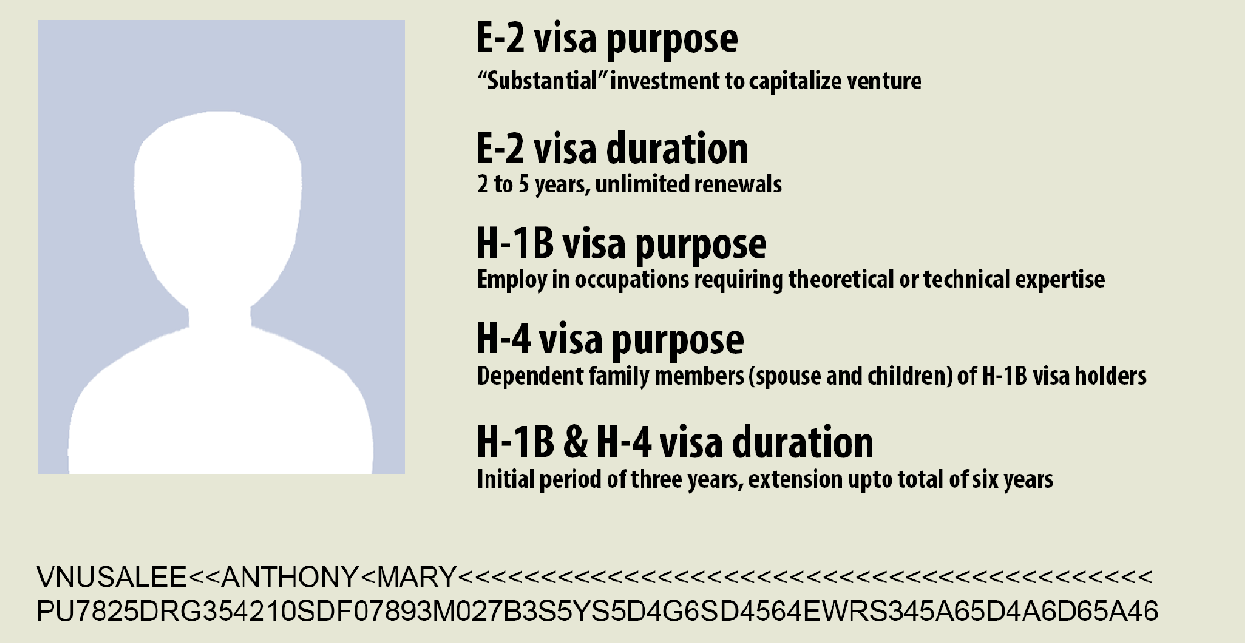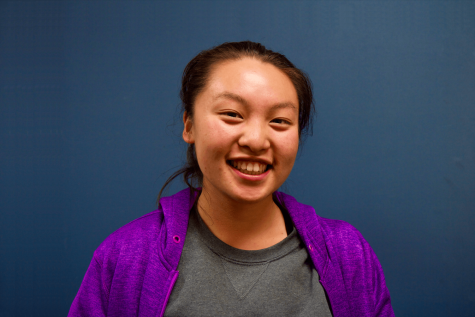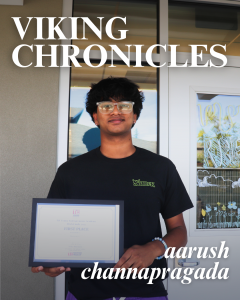Predicaments of overlooked immigrants
November 2, 2017
Ten years ago, Lynbrook alumna Alie Wu arrived in America at the age of seven. Her parents carried E-2 work visas, invaluable skills and the dream of providing a strong future for their family. She quickly grew to call the United States her home. Before her junior year of high school, however, she learned that her parent’s visa had expired and that she could be forced to her birth country, Taiwan. She eventually decided to graduate high school one year early, squeezing senior year classes in her junior year, in order to obtain a student visa to stay in the U.S.
“It was not originally my decision to move to the U.S.,” said Wu. “Now, I have lived most of my life here and I enjoy it. Once I realized how much I like it here, I was faced with the possibility of being sent back, and finding a way to stay was stressful.”
Children of visa holders, such as Wu, are often an overlooked group in the conversation on immigration. For H1-B visa holders, their children are given the H-4 visa. For other visa holders such as E-2, their children are given the same visa under their parent’s name. These children, known as H-4 or E-2 Dreamers, face undeniable struggles in the U.S. After they turn 21, they age out of their visas. If the parents receive green cards and the child is under 21, the child can receive a green card as well. Due to the decade-long wait that many visa holders face when applying for green cards, however, many children do not receive green cards.
“I think the emotional and social challenges [for children of visa holders] are obvious,” said Rebecca Freeman, an immigration lawyer in San Francisco. “Another challenge that people may not think of is related to working. One of the problems for kids of both H1-B and E-2s is that they do not get authorization to work.”
In addition to not being legally allowed to work, children of visa holders may find themselves unable to receive financial aid.
“I watched my friends get jobs over the summer, but I was not able to do that,” said junior Selena Jeong, an E-2 Dreamer. “I also realized there would be no point in taking the PSAT because I am not a citizen or permanent resident, so I do not qualify for any of the scholarships.”
Once H-4 and E-2 Dreamers turn 21, they age out of their visa status and if they do not obtain another visa, they may be forced to leave the country. Many H-4 and E-2 visa holders apply for student visas to stay in the U.S. Although they have lived in the U.S. for most of their lives, they must pay international student fees, which can be up to five times as much as normal college tuition, because they are not citizens or permanent residents. Also, because their visa does not allow them to work, students and their families have even fewer opportunities to help them afford higher education. Without work experience, it becomes more difficult for these students to succeed in competitive industries.
“These challenges are really disappointing for the people who have left their country and have made a lot of sacrifices to get to where they are right now,” said Lynbrook alumna Mahsa Heydari*, an immigrant from Iran. “America is the dream country. People leave everything behind and come here with a hope to work and create stable lives, and they should be supported.”
Satish More, a software engineer on a H1-B visa, has watched his daughter, a college student and H-4 Dreamer who has lived in America since she was a child, be excluded from a multitude of opportunities because of her visa status. Like many on student visas, if she does not find a job quickly after graduation, she may be forced to leave the country she calls home.
“Every day my daughter is under so much pressure that she may need to leave the country,” said More. “Other students do internships and get opportunities to earn and learn and get experience in the real world. She can not do any of that because of her visa and is denied many benefits, despite having lived here for 12 years and following legal routes. What about her future? What about her dreams?”
For H-4 and E-2 Dreamers to legally work in the United States, companies must provide them with work visas, which many companies are unwilling to do for entry-level positions. These challenges have led visa holders to question whether America truly lives up to its ideal as the land of opportunity.
“For students on visas like me, it is hard to find jobs,” said Wu. “There are not many opportunities to try to stay in the U.S. Once your visa expires, you usually do not have a choice other than leaving the country.”
The American dream belongs to everyone in this country who hope to build a better future: American citizens, permanent residents and immigrants, who have historically played a large role in the development of America as a nation. The children of H1-B and E-2 visa holders who call America their home should be given the chance to follow in their parents’ footsteps and use their knowledge to improve American society when they become adults. To continue the legacy of valuable immigrant contributions, America should not neglect any of her country’s dreamers.
* name kept anonymous for privacy




































































